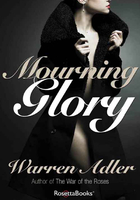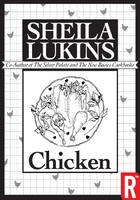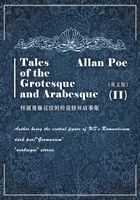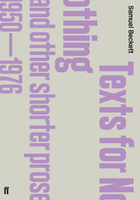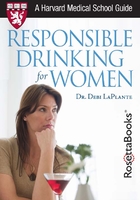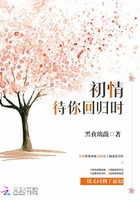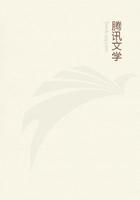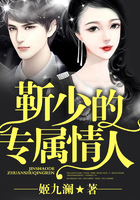Always we have believed
We can change overnight,
Put a different look on the face,
Old passions out of sight:
And find new days relieved
Of all that we regretted
But something always stays
And will not be outwitted.
ELIZABETH JENNINGS, 'DISGUISES'
When I was fourteen years old, imprisoned in a bookless house, bored at school and double-bored at home, the Public Library of Victoria was my Valhalla. I would travel 'into town' from the sea-side suburb where we lived, on the train, with something for my lunch hidden in my briefcase, most often a jar of mussels I had gathered and brewed into a mouth-crinkling vinegary mess and a wholemeal bun. I'd walk fast up Swanston Street, chastely averting my eyes from the shop-window displays. They were in fact about as elegant as the average Oxfam shop, but I knew as little about that as I did about preparing mussels. The walk was uphill; I processed towards it as reverently as any Greek to the Acropolis, although standing on its mound of green grass it looked rather more like a miniature version of Belfast Town Hall. As I walked past the statue of Joan of Arc, I always remembered my grandmother's joke, the first time she took me to visit the Art Gallery, which used to be housed in the same building.
'What's Joan of Arc made of?' she asked.
'Bronze?' I ventured.
'Orleans!' she yelled and hooted with laughter.
Through the revolving door I'd go, out of the blue-white blaze of the sun into mahogany, pietra dura and green baize. I strode confidently, hoping no one would challenge me for being no more than fourteen. My fears of discovery were probably unfounded; my face was so grey and drawn with adolescent misery that the average bar-tender in any of the lavatorial pubs that lined Swanston Street would probably have poured me a brandy without missing a beat, judging me nearer thirty than twenty. I'd take the staircase in a busy little tripping run, as if I did it twenty times a day, and stroll loftily into the reading room. Convinced, as all adolescents are, that everyone was looking at me, I dared not stop and peer. Too proud to hiss a question and scared that my question might give me away, I never quite got the hang of the system.
As in the British Museum, the circular reading room was domed in glass, with long tables radiating from a mahogany core towards the book-lined walls. I used to take a turn or two round the perimeter just to get the feel of bookish gloom, the patina of polished wood and leather, and my heart skipped with suppressed excitement. Although the supervisor in his pulpit at the hub worked away at some librarianly task without raising his head, I was sure he kept a fingertip on each spoke like a spider. I knew that if I should dare to chew or fart or drop a book, or blot it with my cheap pen, he would dart down and paralyse me. So I would quickly get a book, which was never quite the book I wanted, edge my behind onto a slippery chair, and take notes the way I saw others doing. So the habit of a lifetime was formed. More of my waking life has been spent in libraries, with a pen in my hand, than anywhere else.
My dream was to live in this heavenly building and know all its secrets, to have the right to put cards with my writing on them into the catalogue file, to be allowed to go behind the curving book-clad walls into the stacks and have keys to unlock the cabinets of bookish rarities. They didn't give university scholarships with a living allowance for librarians, however, only for teachers. Although she had seldom seen me without a book, and must have known perfectly well that I read most of the nights away with a candle hidden under the blankets, my mother thought I would soon get bored with books, and want pretty clothes and good times. To be a librarian was not a serious ambition. To learn tennis, now, and get to meet nice boys at the tennis club, that would have been a serious ambition. No girl in her right mind could want a job behind the scenes in a library, long hours, bad pay and all that whispering, when she could have a little nine-to-five tedium in return for a tidy pay-packet, lunch-time shopping in town, pretty clothes and boys. That was normal, that was healthy, that was life in fun-loving suburbia. These were the fifties, and I was a freak waiting to be born. Waiting in a library, with a brain stuffed with dreams of luxe, calme et volupté.
There are libraries where you hang like a fly on a window against a curtain wall of glass. There are libraries so over-heated and so dry that walking across the carpet and putting your hand out towards a steel bookcase makes a spark leap the gap with a crack like a bull-whip. There are libraries like the Bibliothèque Nationale in Paris where if you leave your seat to go to the lavatory someone else will take it, and libraries like the Wren Library at Trinity and Duke Humphrey at the Bodleian which have not changed in three hundred years. There are libraries where you may not rest your hands on the books, or lick a finger to turn a page, or use anything but a pencil to make your notes, and then, never, never with your note-pad on the open book! In such libraries you can read the original muster rolls that list the Greers who struggled and survived in the first of many grim chapters of English colonialism. They were sent to a fair and fertile country of green hills and full streams that had been depopulated by a long and vicious war of attrition under Elizabeth. Like all colonials they were exiles from their own land, forced to steal the land of others and to defend their stolen property with their lives. If my father had been born three hundred years ago, the libraries of Britain would have yielded up to me all his tragedy and all his glory in a matter of weeks.
Libraries are reservoirs of strength, grace and wit, reminders of order, calm and continuity, lakes of mental energy, neither warm nor cold, light nor dark. The pleasure they give is steady, unorgastic, reliable, deep and long-lasting. In any library in the world, I am at home, unselfconscious, still and absorbed. It was inevitable that I would begin my search for my father in a library, although I would reckon that my father was never inside a library in his life.
When I got to the Public Library of Victoria this time, I discovered that someone had built a sort of box around it and I had to run a gauntlet of wobbly planking and scaffolding to get in. Though only a stripling among libraries it seemed this one was falling down, but I could see no workmen on the scaffolding, nor did I in any of the weeks that followed. I pushed the swing-door the wrong way, as being left-handed like my father I nearly always do, and walked into deafening, smelly chaos. The smell, and a good deal of the noise, came from a dinette which had been installed in what used to be an exhibition gallery. A makeshift plywood counter had been built half across the foyer; for a panicky moment I wondered if I was going to have to pay the people on the other side of it to read the books for me, but they wished merely to take my bag. Being very used to libraries, I hadn't a bag with me, which rather flummoxed them. I wondered if I shouldn't leave them something else, a shoe or an earring, as a hostage.
Instead of running up the curving stone stair, I was now directed to go in under the staircase, to a part of the building I didn't know existed. I recognised the old catalogue drawers marooned in the middle of an expanse of cheap carpeting. A few steel bookshelves stood about at odd angles. The people sitting at the large tables were not reading or making notes, but gazing at something over my head. I turned and saw that they were watching a board with winking numbers, as if they were playing librarians' bingo. Underneath the board was a small wooden counter, rather like a cocktail bar, and behind it stood four young men talking animatedly in carrying voices.
As I was taking this in, two schoolgirls gingerly approached the bar and one of the young men handed over two slips of paper.
'Sorry,' he said, 'Can't find either of these. Any others you'd like?'
The girls tendered two more slips, went back to their table, and fixed their eyes on the board again.
Clearly, librarians' bingo was weighted in favour of the house. Nobody won the jackpot while I was looking. Not only were the library staff unlikely to be able to find any particular book in the stacks, the readers had little chance of finding any book they wanted in the catalogues, of which there were several, all compiled on different principles. None of the catalogues was kept up to date and none was exhaustive. Books missing for the last fifty years had yet to be entered as missing and whole collections donated to the library had yet to be mentioned in any catalogue.
One of the attendants at the counter saw the expression on my face and called cheerily, 'Terrible, isn't it? This place is a real dump. What are you looking for?'
'The local history collection.'
'Oh, that's in the Latrobe Library.'
I stared at him in horror, thinking I had to go to Latrobe University which was out in the sticks somewhere.
'Through there,' he waved me off to the left. I followed my nose out into a lofty corridor which led to one of the side doors of the building. The massive timber portal, where once great canvases and statues were loaded and unloaded, stood open to the street. The corridor was screened from the bleak south-westerly which blew the sweet-wrappers and crisp-packets up Latrobe Street by a plate-glass partition with a smaller door in it. Every inch of the glass was covered with greasy marks, even thirty feet up, dribbles and slobbers of dried this and that. Burnt rubber, lead, perhaps salt from the sea-breeze. Such ancient grime is to be expected in countries like Cuba where detergent is in short supply and rubber squeegees and chamois leather are not to be had, but in Australia! Home of the twice-daily Lifebuoy shower!
Through another equally dirty glass partition, which formed the wall of the Latrobe Library, I could see the pensioners at play amongst the archives, chatting gaily as they fed microfilm and microfiche into a motley collection of elderly machines. By the time I had found anything among the dog-eared volumes that lay higgledy-piggledy on the shelves of the Family History Section, only the worst machines were left, the ones that had worn patches on the lenses and screamed and rattled and banged as you wound the films on and off, which mostly had to be done by hand, the switches being worn out. Within hours I had the names of every Greer born, married or dead in Victoria before 1900. And every Greer listed as a householder in every directory. I had found W.L.S.'s daughters, and John Shaw and his sons. But no Robert and no Emma Rachel. I needed the electoral rolls, which were upstairs.
This time, the room that I could see through the smeared glass partition was uninhabited except for a semi-clad male lolling half under a small table a few feet from the glass. I went to push the glass door open and bounced off it. It was locked. The man on the other side seemed not to have heard the impact of my body and did not look up. I knocked. The man lifted his head, looked benignly at me, and looked away again. I knocked again, this time with my wedding ring. 'It's locked,' the man mouthed. 'So open it,' I mouthed back. He got to his feet and to the door in one seamless and very slow movement, as if doing Tai Chi, and opened it a crack.
'Whaddya want?' he asked.
'I want to look something up.'
He seemed surprised. 'What?'
'What do you mean what?'
'Whaddya want to look up?'
'Electoral rolls.'
'Which?'
'Several,' I thought it best not to startle him by saying, 'All.'
'Where's y'card?'
Card. This was the first I had heard of a card. The librarian downstairs should have issued me with a card. The librarian downstairs seemed irked but she scribbled me a chit and sent me back upstairs.
The sleepwalker let me in, chose me a table and brought me an electoral roll, in another of his continuous movements, in which the aim seemed to be to lift the soles of his thong sandals from the floor as infrequently as possible. Two minutes later I had the Greers out of that roll, and asked for another. He had not chosen my table at all well; try as he might he could not reach down the book and swivel it round to me while standing on one leg. His rooted objection to walking finally overcame him and he sank down behind the little table, giving me to understand that I could fetch and carry for myself. And so I discovered that no Robert Greer journalist had voted in Victoria during the time my father was growing up. There was a Robert John in the directories from 1908, but he was a farmer. There was a saw-miller in Gembrook, an ironmonger-cum-fruiterer who moved about in the Oakleigh area, an operator in Albert Park, labourers in Camberwell, South Yarra and Dartmoor; none was married to an Emma Rachel.
This exclusion exercise completed, it remained to try to trace Robert Greer journalist through the newspapers. They were yet further upstairs. This time the room was thronged with people, standing, sitting and lying about among stacks of tattered volumes, which leaned this way and that like the towers of San Gimignano. The noise, and the grime, and the makeshift partitions put together out of bookcases, and the smell of newsprint made it seem more like a printing shop than a library. Behind one partition sat a man with a flat-iron, ironing newspapers. By the door stood a photocopier, for the use of the public, who used it I noticed with a commendable disregard for the law of copyright. As I came past, a woman was making a copy of a book on do-it-yourself divorce, while two toddlers who had evidently come with her jumped up and down on a wooden bench and screamed like macaws. The next table was crowded with men reading the news from the Aegean in Turkish and Greek, who were too busy muttering, bristling and glaring at each other to resent the row the children were making.
At length I managed to distract the librarians from an animated conversation. 'May I see the Launceston Daily Telegraph for 1928?'
The librarians looked at me, and then at each other, each trying to stare another into dealing with my request. The loser in the contest slid off the desk they were all sitting on, fetched the check list of newspapers and stood holding it, without opening it. 'Do we have it?' he asked the others. They looked at each other and then by common accord looked at me. 'Bedder look in the main catalogue,' one of them said.
Down six flights of stairs, there was no sign of the Launceston Daily Telegraph in the main catalogue, or in any other of the catalogues. Eventually a librarian produced the check list I had seen upstairs.
Back up the six flights, the librarians were sceptical. I showed them their own accession number in their own check list.
'Bedder get the librarian,' said one.
'Yeah,' said another, 'get the librarian.'
Again the wordless contest to see who would weaken first and actually go to get the librarian. After a long minute one of them put down his coffee mug and, after bumping around the walls like a blowfly for a bit, disappeared from view.
His place was taken by the most spectacularly under-dressed individual I have ever seen anywhere but on a beach or in the Amazon jungle. He wore nothing but very short shorts with a split at the side, of the kind called 'stubbies', a thread-bare T-shirt, thong sandals and a fringe of dusty-looking curls. Although he seemed near-sighted, he wore no spectacles. He moved my request slip back and forth a few times, and then gave up any attempt to focus on it, and asked me what I sought.
'Oh, they're not here.'
I opened my mouth as if to scream. The librarian waved away my distress, 'Nah, nah, they're y'know in P'ran.'
'Must I go to Prahran?'
He shook his head as if to calm my unhealthy haste. 'Nah, nah. Somebody'll be driving.' It sounded as if Prahran was halfway up the Birdsville track and we were waiting on an Afghan camel train. 'Tomorrow, prob'ly. Whaddya reckon?'
One of the loungers came momentarily alive. 'Back around four. Tomorrow.'
Not bad going really, seven hours to go four miles or so to Prahran and back. A day with the library van to yourself could only be spoilt by people like me asking for newspapers.
'D'y'know what date y'want?' asked the naked librarian.
'I thought I'd just read through from the beginning of the year. 1928, that is.'
'Go for it,' said the librarian kindly and withdrew.
And I went for it. I had to find where young Reg Greer had started his newspaper career as 'reader', and gone on to be 'reporter'. Nowadays such a progression would be impossible, but in the twenties new recruits to the newspaper business were often employed long hours at night reading and correcting copy brought in by the leg-men. Some of Reg Greer's old colleagues were certain that he had been employed by a Tasmanian newspaper that closed down, whereupon he went to the mainland. The newspaper that fitted the bill was the Launceston Daily Telegraph which closed down in 1928.
If I had been given to suspecting my father of mendacity, I might have realised that journalism was one of the few professions, as distinct from jobs, in which an individual could operate with virtual anonymity. Clergymen, bankers, lawyers, accountants, shopkeepers, publicans, doctors, can all be traced through one list or another, but journalists are a different matter. Until well into the 1930s reporters considered their anonymity to be an important aspect of the freedom of the press and refused to publish over by-lines. Pressure for the use of by-lines was first applied by politicians anxious to identify the authors of editorials which materially influenced readers' votes. The newspapers responded with an angry defence of their editorial freedom, and refused to expose individual journalists to discrimination and reprisals.
In the twenties the only by-lines appeared on articles dealing with specific and limited fields; 'The Poultry World' in the Daily Telegraph was written by 'Utility', bloodstock by 'Bingen', rifle-shooting by 'Sighter', trotting by 'Mauritius', the turf by 'Valais', tennis by 'Top Spin'. The noms de plume sometimes concealed well-known local characters, like Sir Ray Ferrall who was 'Uncle Sunbeam' and 'Agricola', but equally juniors standing in for the experts sheltered behind them. If Reg Greer was on the literary staff of the newspaper, he would probably have been reporting sport which remained his particular field of expertise all his life, but if he was 'Top Spin' or 'Valais' there was no way of telling. The duty books of the Daily Telegraph have long since disappeared.
I read on steadily hoping for a sign. The Launceston Coursing Club advertised for live hares. I noticed that thirty-five-year-old Donald Kerr of Adelaide had slashed his wrists and gassed himself. In 1914 he was Stow prizewinner at the University of Adelaide; he had enlisted in 1915 and fought in Egypt and France. He won the Military Medal and was wounded at Pozières. They must have thought that he had got his life back together again when he graduated Doctor of Laws in 1919 but they were wrong. Nine years later he made sure that he did not have to see another day. Perhaps he needed Chamberlain's Tablets. 'A Co-lonic can never be happy,' sang the advertisement. 'Take one tonight, tomorrow you're right.'
The paper soldiered on until the very end; only on the last day of publication did it admit that it was closing down:
And now the little army of workers who were the Daily Telegraph staff will go their several ways, many of them facing the uncertain future with misgivings, but withal maintaining the cheerful spirit of hope and courage born of long association with the hazard of the 'inky way'. Yesterday's entries in the duty book of the Daily Telegraph's literary staff included the following observations:
'Peace declared.'
'Be it known: on this day ceased the war waged between the sub-editor and the foreman printer. No more the anguished yell for early "Brev's" and the scream of "no Space".'
'Time off (indefinite): the Staff.'
For hundreds of hours I put together the history of the Launceston Daily Telegraph. I knew the names and addresses of all the owners, managers, editors, journalists, columnists and reporters the paper had ever had. I knew the names of their wives and the composition of their households, which I studied to discover if there were any foster-children or step-children who might have been called Greer. I read the records of the Australian Journalists' Association, and found that no Greer had ever been a member. I talked with the two survivors of the crash of the Daily Telegraph, who still live in northern Tasmania. Neither of them had ever heard the name Greer in connection with Tasmanian newspapers. I went to Canberra and studied their list of Australian pressmen, which includes details of the provincial newspapers, their owners, managers and staff. No Greer appeared anywhere in their lists. There was something seriously wrong somewhere.
The only possibility was that Reg Greer's parents had indeed left Australia, as I had soon to leave it. All was not well at Mill Farm, where the inmates had begun to drive each other crazy, under the influence of the primal elder's curse. The winter was cruel; as one person crept around the house turning heaters off, another was creeping around turning them up. The greenhouse heater burned out completely and eighty daphne seedlings and a few hundred other laboriously propagated odds and ends were dead. Besides I was expected in India, where I was to combine attending a conference in Delhi with investigating the Doolally connection.
The day before I left Australia, I came across an entry in the Tasmanian marriage register. I had stopped searching Greer names, for by now I knew them all, and had started on Wise. I found an Emma Wise who got married in Launceston in 1889. The town was right, the name was nearly right, but the date was all wrong. I looked up the marriage certificate to see whom she married, on 26 March in the Manse of York Street Baptist Church. Her husband's name was Robert Greeney. There were too many coincidences by half. All but three letters of their surname, plus their Christian names, were right. If this illiterate labourer born around 1863 was my grandfather, every word of the history my father gave the interview board of the RAAF was false, including his name. I was not so disloyal as to entertain such a suspicion; I scribbled the details in the margin of my notebook, and did my best to forget them.

